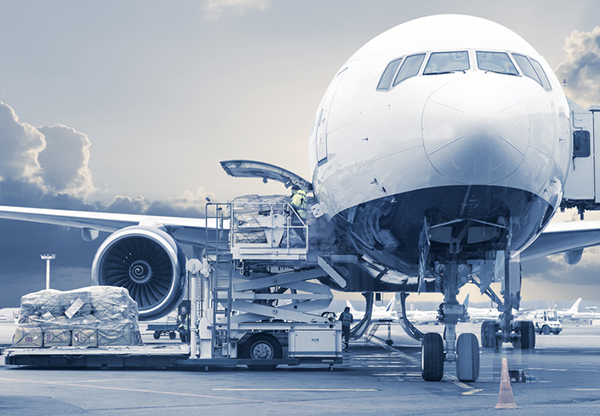The International Air Transport Association (IATA) renewed its call to governments to take urgent measures to ensure that vital air cargo supply lines remain open, and effective. In the United States, meanwhile, The Airforwarders Association (AfA) is asking the Biden Administration to review regulatory ordinances that are preventing progress and inhibiting efficiency across a wide range of businesses.
Global airlines are scrambling to meet the gap between cargo demand and available lift by all means possible, notes Alexandre de Juniac, IATA’s Director General and CEO. This includes re-introducing freighter services and using passenger aircraft for cargo operations.
“The COVID-19 crisis has seen almost the entire world-wide passenger aircraft fleet grounded,” he says. “This is a fleet which normally transports almost half of total air cargo shipments.”
To prevails over these challenges, IATA is asking governments to remove key regulatory obstacles by introducing fast track procedures for overflight and landing permits for cargo operations. This is particularly key for manufacturing hubs in Asia – China, Korea and Japan.
IATA is also advocating the removal of operating hour curfews for cargo flights to facilitate the most flexible global air cargo network operations.
“Air cargo is on the front line, not only fighting COVID-19 but ensuing that global supply chains are maintained for the most time-sensitive materials including food and other products purchased online in support of quarantine and social distancing policies implemented by states,” says Glyn Hughes, IATA Global Head of Air Cargo.
But they only continue to do this if they work together with the support of governments, she adds.
“Keeping supply lines open also supports jobs in local economies for example producers of perishables in Africa and Latin America. We are stronger together.”
For U.S. shippers who see greater containment of the pandemic these days, much credit goes to FedEx Express which has helped the government transport COVID-19 test specimens from more than 50 remote drive-thru testing centers at major retailers across 12 states.
The UPS Foundation, too, has expanded its relief response to the pandemic by delivering urgent medical supplies, food and housing, and financial assistance to aid in recovery efforts. Still, the issue of resilience on both the physical and cyber fronts, remains a chief concern for U.S. shippers.
“We strongly encourage the new administration to rapidly implement high-security standards that provide necessary protections for both cargo and transportation personnel,” says Brandon Fried, AfA’s executive director.
At the same time, air cargo providers are concerned about regulatory reforms that may stifle free enterprise.
“President Biden’s ‘Made in America’ executive order is a laudable resolution to stimulate the economy,” declares Fried, “and the AfA endorses the effort. However, it is equally as important to keep global trade lanes open.”
Fried also notes that the introduction of innovative technologies should be used to cut red tape.
“We ask that the Biden Administration make it a priority to review and consider revising several regulatory ordinances that are preventing progress and inhibiting efficiency across a wide range of businesses,” he concludes.
SC
MR


Latest Supply Chain News
- Survey reveals strategies for addressing supply chain, logistics labor shortages
- Israel, Ukraine aid package to increase pressure on aerospace and defense supply chains
- How CPG brands can deliver on supplier diversity promises
- How S&OP provides the answer to in-demand products
- AI, virtual reality is bringing experiential learning into the modern age
- More News
Latest Podcast

 Explore
Explore
Business Management News
- Survey reveals strategies for addressing supply chain, logistics labor shortages
- How CPG brands can deliver on supplier diversity promises
- How S&OP provides the answer to in-demand products
- AI, virtual reality is bringing experiential learning into the modern age
- Tips for CIOs to overcome technology talent acquisition troubles
- There is still work to do to achieve supply chain stability
- More Business Management
Latest Business Management Resources

Subscribe

Supply Chain Management Review delivers the best industry content.

Editors’ Picks





